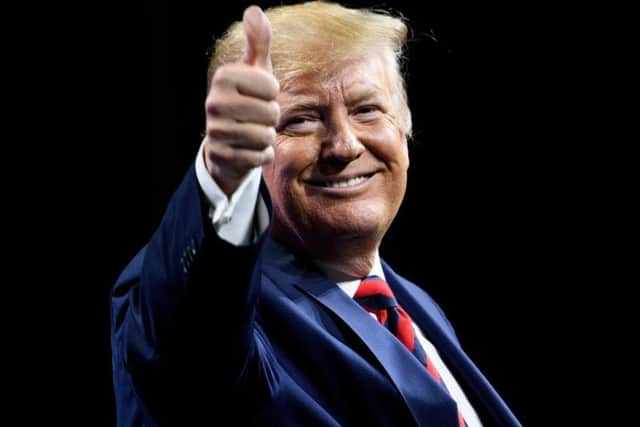General Election 2019: Does Donald Trump’s intervention help Labour or the Tories?
When Barack Obama gave his “back of the queue” warning during the Brexit referendum, it was seen as hugely controversial - but to step in and back one party over another, praising Boris Johnson and attacking Jeremy Corbyn, is totally different.
Who does it help?
Several newspapers - including The Scotsman - carried the President’s warning that Mr Johnson’s Brexit agreement is a risk to future UK-US trade on their front pages. A trade deal with Washington is the government’s top post-Brexit prize; it’s a key reason why the Prime Minister ditched Theresa May’s Brexit plan in favour of looser ties with the EU.


Advertisement
Hide AdAdvertisement
Hide AdCommitments to maintain a ‘level playing field’ on regulations covering the environment, social protections and state aid were shifted from the legally-binding Withdrawal Agreement to the aspirational Political Declaration, precisely so the UK could cut deals with the US and other countries.
And demands from American negotiators for the UK to relax its food safety standards - on ‘chlorinated chicken’ and much else - mean a trade deal with the US is both politically and practically tricky.
So President Trump’s comments won’t have been wholly welcome in Downing Street - not just on trade, but because he made them to Nigel Farage, giving a boost to the Brexit Party leader who today set out how many constituencies he would challenge the Conservatives in.
And generally, the association between the US President - who 67% of the British public say they dislike - and the Prime Minister isn’t positive one for Mr Johnson.
Farage is the real winner
But the interview wasn’t totally unhelpful to the Tories.
Labour have struck a careful and clever balance in the first days of the campaign. They’ve made their message both about the Brexit and the NHS by warning of a “sellout” of the health service to American pharmaceutical corporations.
Mr Trump insisted the NHS wouldn’t be part of any trade deal, and the Labour leader responded by tweeting that the US President was “trying to interfere in Britain’s election to get his friend Boris Johnson elected,” showing Labour’s main concern is to protect their top election issue and keep it on the agenda.
The real winner from the President’s interference must be Mr Farage.
He timed the interview perfectly, given he will have to give up his LBC radio show under broadcast impartiality rules during the election campaign, and his Brexit Party has only one policy to run on: leaving the EU without a deal.
